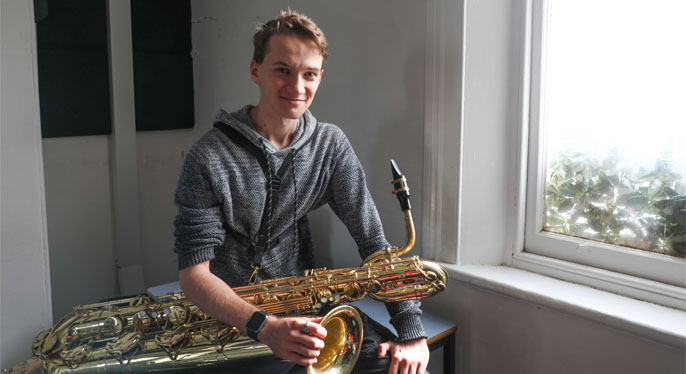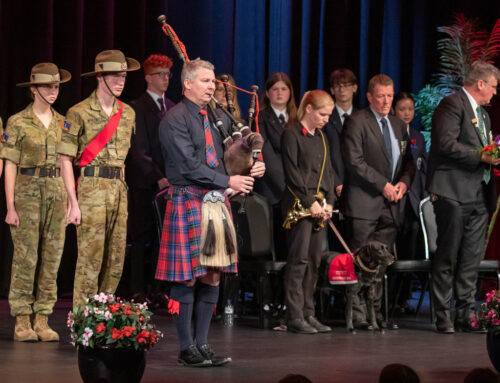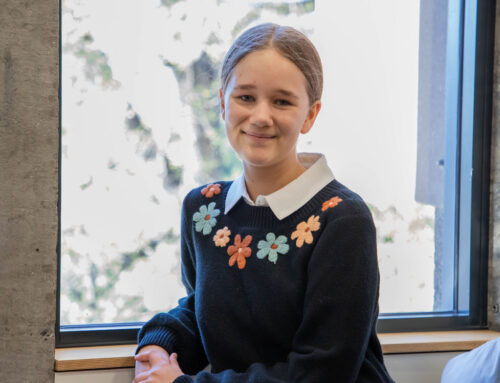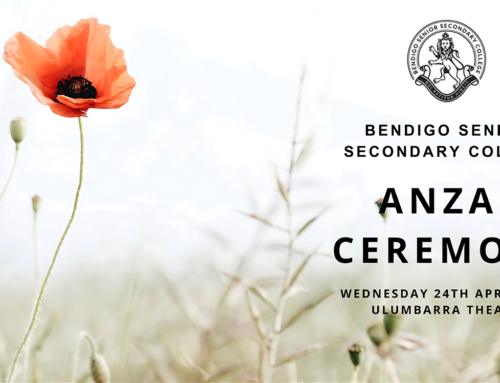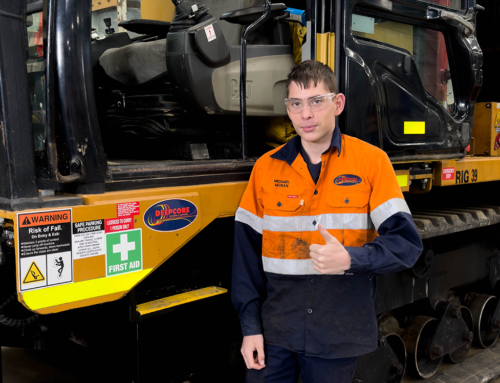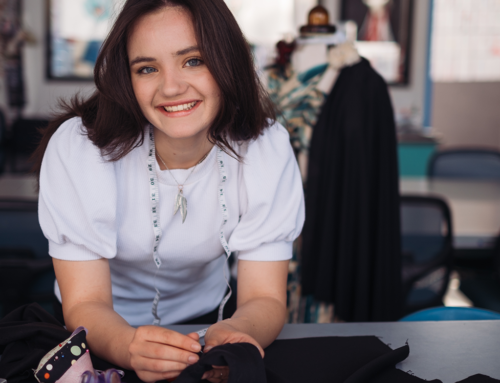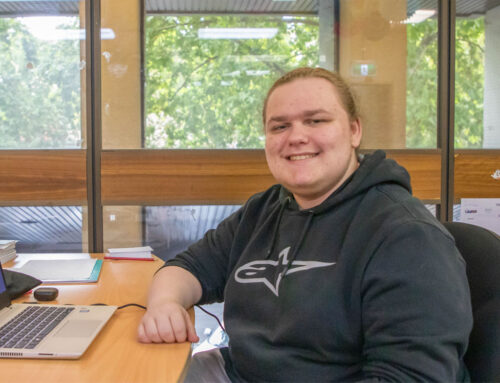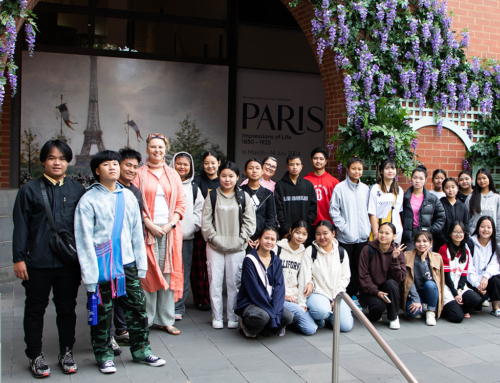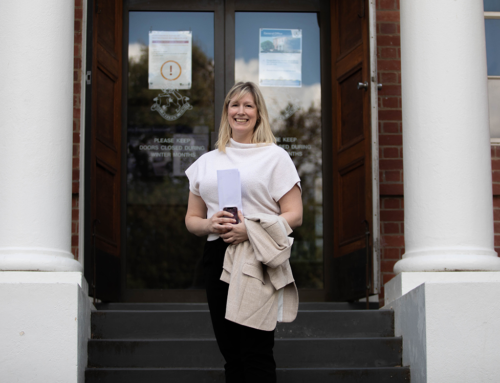Year 12 student, Tas Careedy’s, love of music leaves him little down time.
But as Tas says, music ‘is’ his down time.
“I’m a bit of a one-man-band,” he says, “constantly composing and laying down tracks using the instruments I play.”
His main focus of study is alto saxophone, but he also plays other types of saxophone and the piano (his first instrument) as well as guitar, bass, drums and, less often, flute.
Tas began playing piano 10 years ago and picked up saxophone when a brass and woodwind teacher came to Camp Hill Primary School.
His whole family loves music and, seeing the joy that saxophone would add to their repertoire, encouraged Tas to give it a try.
BSE continued to support his musical path and in Year 10 Tas took out Musician of the Year (MOTY) and the MOTY Audience Award—in a college where a saxophonist had never triumphed.
Covid meant the MOTY process was undertaken by video. Tas included choreography and a serious lighting rig.
While he appreciates the importance of creating atmosphere, Tas believes music is about good melody, structure and harmony—and changing an audience’s perspective by doing something completely new.
He’s also acutely aware of the way instruments naturally lend themselves to certain styles and emotional contexts.
“A piano can be mellow in a way the saxophone cannot,” he says. “And the drums are perfect for when you, or a song, needs to be angry.”
In the middle of 2021, Tas realised guitar was the missing ingredient in some of his music.
“It was easy to learn and Dad and my brother helped me,” he recalls. “Learning guitar also felt like a connection back to my childhood.”
Tas has wonderful memories of his dad playing guitar to him and his brother when they were small.
“If I ever have children, I’d play guitar to them too,” he says. “You can just pick it up and play, whereas the sax requires a bit of a set-up and you can’t sing along easily with a saxophone!”
When we asked Tas who he would speak to if he could have a conversation with anyone on the planet, his character shone through. He would still opt for the conversations he enjoys daily with his mum, dad and brother.
Now in his final year of schooling, Tas would love to be studying music and nothing else, however Physics, Maths and English Language are an important part of his study timetable. With his characteristic focus, Tas has developed positive approaches to his studies.
“The key aspect in VCE is understanding,” he says. “I often see students taking all these notes but not focusing on grasping a complex idea. That would be my study tip—work towards understanding.”
Tas plans to study jazz theory at Victorian College of the Arts (VCA) and is hoping to meet like-minded musicians interested in pursuing the styles of music he loves creating.
“I’m planning a career as a musician and composer, though I don’t plan on being solely a jazz artist,” he says. “I want to find ways to incorporate what I learn with what I write.
“I see music as a kind of service to the community because so many people listen every day and are willing to experience really strong emotions—good or bad—through music.”
For Tas, a good melody will either inspire him or trigger a memory.
“It’s such an important way to express your individuality,” he says.
Tas is encouraged that society is becoming more welcoming of diversity, such as changes in attitudes towards the LGBTI community.
He’s has found BSSC to be an inclusive environment, where favouritism is frowned upon and the focus is on equality and belonging.
“No course is treated as superior to any other and this encourages students to follow their desired pathway with great support from teachers,” he says.
Tas has enormous gratitude for those who contribute to society so we can all live the lives we want to.
“Perhaps the antibiotics discovered early last century saved an ancestor of mine,” he muses. “Without that discovery I might not even exist.”
If he could go back and offer one piece of advice to his budding muso self it would be to ‘practice more’ and ‘commit sooner’.
“I would also say ‘don’t ever take opportunities for granted, and to use bad experiences as an opportunity to mature and move on.”

